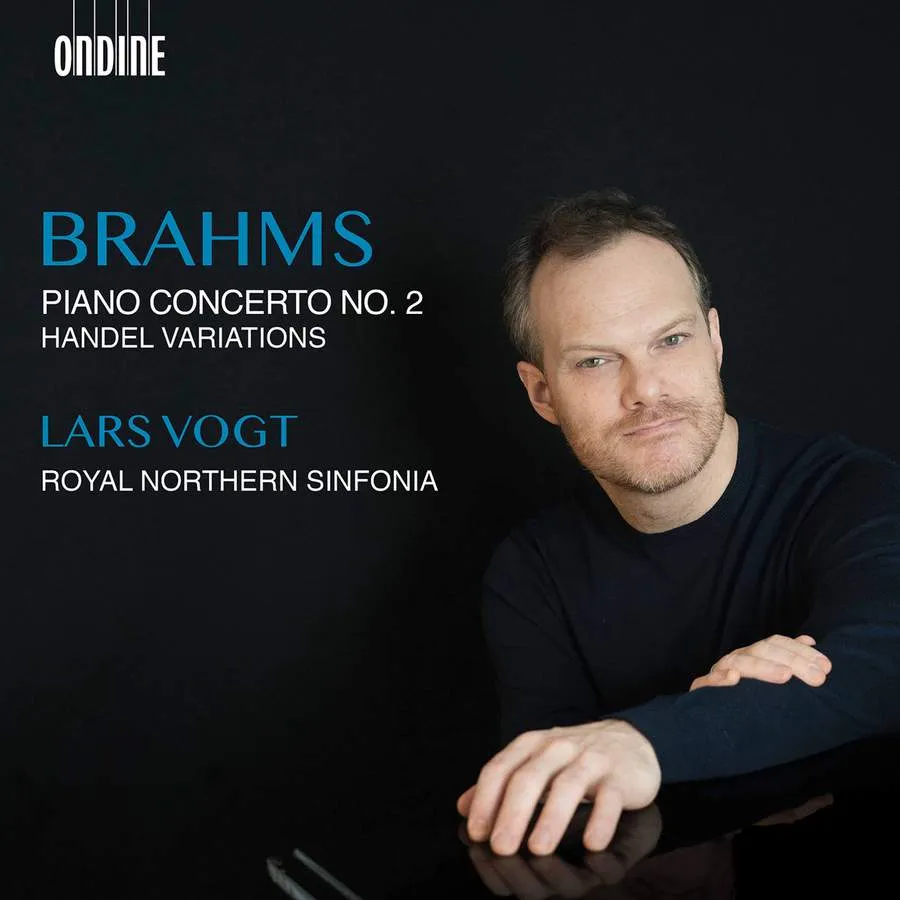
Brahms Piano Concerto No. 2 in B flat major, Op. 83*; Variations and Fugue on a Theme by Handel, Op. 24 Lars Vogt (piano); Northern Sinfonia* Ondine ODE 1346-2 74:38 mins
This is Brahms playing of the highest quality. Lars Vogt secures an ideal balance between the intellectual and emotional components of these two epic works. He delivers a blisteringly exciting account of the Handel Variations, maximising the degree of contrast between the individual variations whilst at the same time driving forward with a great sense of purpose towards the glorious concluding Fugue. The warmly recorded performance of the Second Piano Concerto is equally compelling, benefiting from Vogt’s subtle manipulation of rubato, structural lucidity and the astonishing wealth of colours he draws from the piano. This fluidity of sound is most obviously exemplified by contrasting the veiled almost impressionistic textures of the middle of the Andante with the richly sonorous cadenza passages in the first movement which are powerfully enhanced by Vogt’s insightful delineation of the all-important bass lines.
Vogt’s achievement is all the more impressive since he directs the Concerto from the keyboard, something rarely undertaken by other interpreters of the work. Instead of the conventional battle-royal between soloist and orchestra, the Royal Northern Sinfonia respond to the nuances in his playing with solid ensemble and chamber music-like sensitivity, notably in quieter passages in the first and third movements.
In such an over-recorded work, there are inevitably some contentious interpretative decisions. At the start of the Andante, might the expressively played but fast-flowing cello solo have projected more repose in the light of the storms and stresses of the preceding Allegro appassionato? But any misgivings soon evaporated following the mesmerisingly beautiful arabesques of Vogt’s first entry in the movement.
Erik Levi